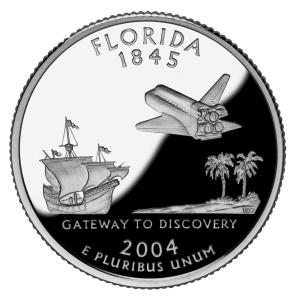Williams-Yulee v. The Florida Bar: Campaign Finance for Judges

Later this term, the U.S. Supreme Court will consider another case related to campaign finance. This time, in Williams-Yulee v. The Florida Bar the issue is whether a rule of judicial conduct that prohibits candidates for judicial office from personally soliciting campaign funds violates the First Amendment.
The Facts of the Case
Petitioner Lanell Williams-Yulee sought election as a County Court Judge in Hillsborough County, Florida. Shortly after she registered as a judicial candidate, she drafted and signed a mass-mail letter announcing her candidacy and seeking campaign contributions. See App., infra, 31a-32a. The Florida Supreme Court publicly sanctioned Yulee for violating the Canon 7C(1) of the Florida Code of Judicial Conduct. It provides, in relevant part, that:
A candidate, including an incumbent judge, for a judicial office that is filled by public election between competing candidates shall not personally solicit campaign funds, or solicit attorneys for publicly stated support, but may establish committees of responsible persons to secure and manage the expenditure of funds for the candidate’s campaign and to obtain public statements of support for his or her candidacy.
The Florida Supreme Court rejected Yulee’s argument that Canon 7C(1) violates the First Amendment. While the court acknowledged that “Canon 7C(1) clearly restricts a judicial candidate’s speech,” and therefore “must be narrowly tailored to serve a compelling state interest,” it concluded held that “Florida has ‘a compelling state interest in preserving the integrity of [its] judiciary and maintaining the public’s confidence in an impartial judiciary,’”
Yulee appealed to the U.S. Supreme Court, citing a circuit split on the issue of whether restrictions like Canon 7C(1) are constitutional. In addition to Florida’s Supreme Court, the federal courts of appeals for the Third and Seventh Circuits, along with the highest courts of Arkansas and Oregon, have held that such laws do not violate the First Amendment. By contrast, the federal courts of appeals for the Sixth, Eighth, Ninth, and Eleventh Circuits have held that they do.
The Legal Background
The Roberts Court previously addressed campaign finance in Citizens United v. Federal Election Commission, in which the majority held that political spending by unions and corporations constitutes protected speech under the First Amendment. The controversial decision, however, was not unanimous. In his dissent, Justice John Paul Stevens specifically addressed judicial elections, writing, “At a time when concerns about the conduct of judicial elections have reached a fever pitch, the court today unleashes the floodgates of corporate and union general treasury spending in these races.” Both the majority and dissents touched on another case, Caperton v. A.T. Massey Coal Co., which had held that a judge’s failure to recuse himself after receiving significant campaign contributions created a conflict of interest extreme enough to be a violation of a plaintiff’s right to due process under the 14th amendment.
Previous Articles
SCOTUS Decision in Bowe v. United States Is First of the 2026 Term
by DONALD SCARINCI on February 5, 2026
In Bowe v. United States, 607 U.S. ___ (2026), the U.S. Supreme Court held that Title 28 U.S.C. § ...
SCOTUS Rules State Can’t Immunize Parties from Federal Civil Liability
by DONALD SCARINCI on January 29, 2026
In John Doe v. Dynamic Physical Therapy, LLC, 607 U.S. ____ (2025) the U.S. Supreme Court held that...
Supreme Court to Address Racial Discrimination in Jury Selection
by DONALD SCARINCI onWhile the U.S. Supreme Court has concluded oral arguments for the year, it continues to add cases t...
The Amendments
-
Amendment1
- Establishment ClauseFree Exercise Clause
- Freedom of Speech
- Freedoms of Press
- Freedom of Assembly, and Petitition
-
Amendment2
- The Right to Bear Arms
-
Amendment4
- Unreasonable Searches and Seizures
-
Amendment5
- Due Process
- Eminent Domain
- Rights of Criminal Defendants
Preamble to the Bill of Rights
Congress of the United States begun and held at the City of New-York, on Wednesday the fourth of March, one thousand seven hundred and eighty nine.
THE Conventions of a number of the States, having at the time of their adopting the Constitution, expressed a desire, in order to prevent misconstruction or abuse of its powers, that further declaratory and restrictive clauses should be added: And as extending the ground of public confidence in the Government, will best ensure the beneficent ends of its institution.





